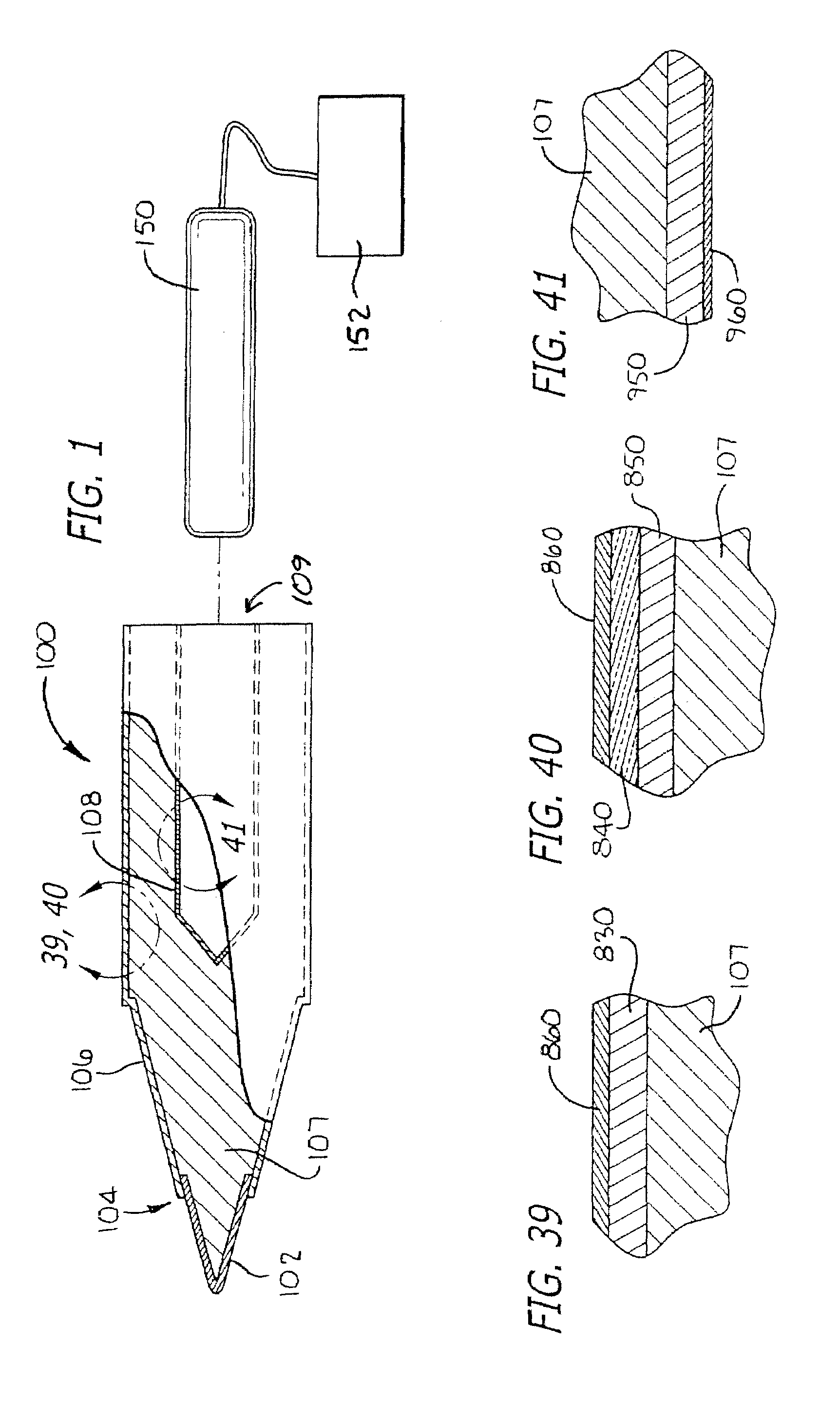Method of soldering iron tip with metal particle sintered member connected to heat conducting core
a technology of metal particle sintered member and soldering iron, which is applied in the direction of manufacturing tools, heating appliances, and solventing apparatus, etc., can solve the problems of reduced limited so as to reduce the working life of tips, and reduce the corrosion of soldering iron tips
- Summary
- Abstract
- Description
- Claims
- Application Information
AI Technical Summary
Benefits of technology
Problems solved by technology
Method used
Image
Examples
Embodiment Construction
[0242]General Description of a Soldering Iron Tip
[0243]Referring to FIG. 1, a cross-sectional view of a preferred soldering iron tip of the present invention is illustrated generally at 100. Illustrated therein are four features, namely, the MIM cap 102, the joint 104 for the cap, the thermal spray coating 106 on the core 107, and the thermal barrier coating 108 in the cavity 109. Each of these will be described in greater detail and with other applications and alternatives in subsequent sections in this disclosure.
[0244]Advantages of the soldering iron tip 100 of FIG. 1 are that it is free of lead and chromium, can be used with lead-free solder, allows for the selection of various alternative materials (for longer life Fe-0.8C, for more wetness: Fe—Ag, Fe—Cu), better thermal conduction because the insert pipe has been removed, less error than caused by plating thickness, can be produced rather quickly so as to reduce stock (from forty-five days down to one day), and can be adapted ...
PUM
| Property | Measurement | Unit |
|---|---|---|
| size | aaaaa | aaaaa |
| size | aaaaa | aaaaa |
| temperature | aaaaa | aaaaa |
Abstract
Description
Claims
Application Information
 Login to View More
Login to View More - R&D
- Intellectual Property
- Life Sciences
- Materials
- Tech Scout
- Unparalleled Data Quality
- Higher Quality Content
- 60% Fewer Hallucinations
Browse by: Latest US Patents, China's latest patents, Technical Efficacy Thesaurus, Application Domain, Technology Topic, Popular Technical Reports.
© 2025 PatSnap. All rights reserved.Legal|Privacy policy|Modern Slavery Act Transparency Statement|Sitemap|About US| Contact US: help@patsnap.com



